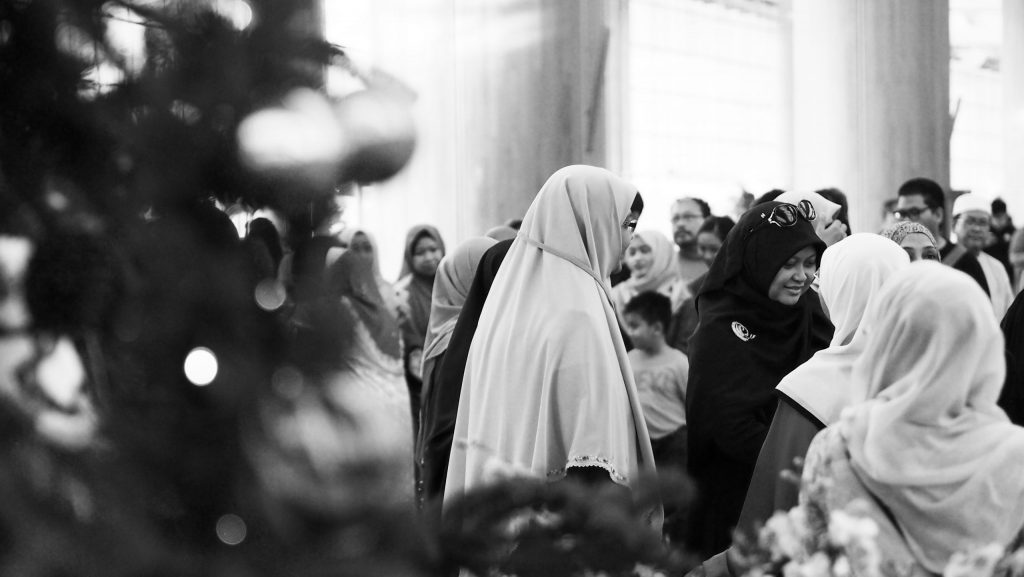Shariah Revivalism in Singapore
November 2, 2021

From 1st November 2021, Muslim nurses serving in Singapore’s public healthcare centers will be allowed to wear tudungs with their uniforms. The tudung is a part of Islamic dress for Muslim women and serves to reaffirm their identity as religious women and foster a sense of solidarity among themselves. Wearing a tudung is entirely up to the individual and is not mandatory. Previously, Muslim nurses were not allowed to wear them while they were working. Allowing Muslim public servants to don their tudungs with their uniform has been a highly contested issue in parliament. In a parliamentary debate, the Minister-in-charge of Muslim Affairs, Mr Masagos Zulkifli, argued that the government had a responsibility to ensure that the public service was secular, suggesting that the uniform policy should not be changed to favor a particular religious group. In response, Mr Manap from the Workers’ Party argued that such a policy deterred Muslim women from entering the public healthcare sector altogether.
In ‘Shariah Revivalism in Singapore’ (Islam in Southeast Asia: Negotiating Modernity, 2019), Associate Professor Noor Aishah Abdul Rahman (NUS Department of Malay Studies) outlines the ways of thinking adopted by Singapore’s Shariah revivalist proponents and how their conception of the Shariah hinders possible development of effective Muslim law, which in turn affects the wellbeing of Muslims in Singapore and the wider community.
In Singapore, non-Muslims and Muslims are bound by the same laws. However, in the domains of family and inheritance, Muslims are subjected to Islam’s legal system, which is also known as the Shariah. After Singapore gained independence from Malaysia in 1965, scholars and community leaders in the country noticed a socioeconomic gap between the Malays and the non-Malays. These community leaders and scholars were aware of the threat this socioeconomic gap posed to the cohesiveness and stability of society. A/P Noor points out that Malay elites evoked religious values and traditions to drive the community’s progress forwards, encouraging the Malay community to seek new economic opportunities and adapt to the demands of modernization. Soon, Islamic values and traditions became a ballast for Singapore’s Malay community.
Analyzing the discourse employed by Singapore Shariah’s revivalist proponents, A/P Noor describes the Shariah revivalists’ modes of thought as exclusivist, puritanical, and authoritarian. These revivalists often assume sole guardianship of Islam and are intolerant of competing views from different Islamic traditions. Traditional Islam has been apolitical and is focused on piety and personal salvation. Shariah revivalists differ in the ways they perceive the role of Islam in society. A/P Noor argues that these revivalists perceive Islam as a religion capable of governing all aspects of human life — socioeconomic, political, legal, and moral. She raises instances of Shariah revivalist proponents opposing public policies they deem un-Islamic. These include the prohibition of wearing tudungs in schools and the ban on certain Muslim evangelist preachers from being invited to Singapore. Proponents of Shariah revivalism view the tension between existing institutions and religion as a dichotomy. The state and its existing institutions are seen as Western imports.
A/P Noor points out that Shariah revivalism is an act of deflection from the existing problems faced during the implementation of effective Muslim law. Appealing to an exclusivist and authoritarian code of law are non-productive in helping Muslim families to adapt their values, beliefs, and frameworks to their contemporary conditions and lived experiences. Proponents of revivalism, whether deliberately or not, are obscuring the need for systematic reform of substantive law to adapt to modern conditions. Although these contestations have mainly occurred in the larger Muslim world, Muslims in Singapore continue to be affected by them.
Get Islam in Southeast Asia: Negotiating Modernity here!
